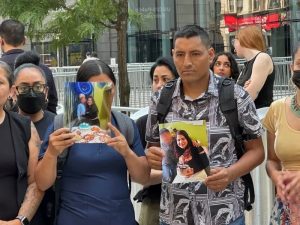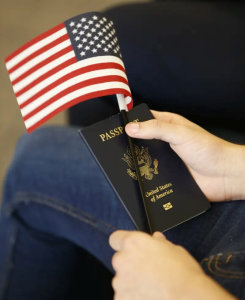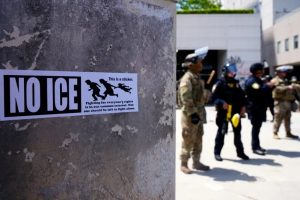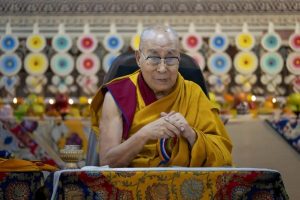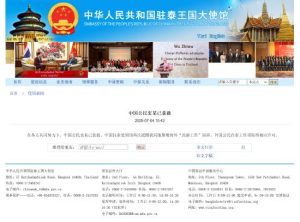Chinese engineers entering the US were locked up in a “small black room”
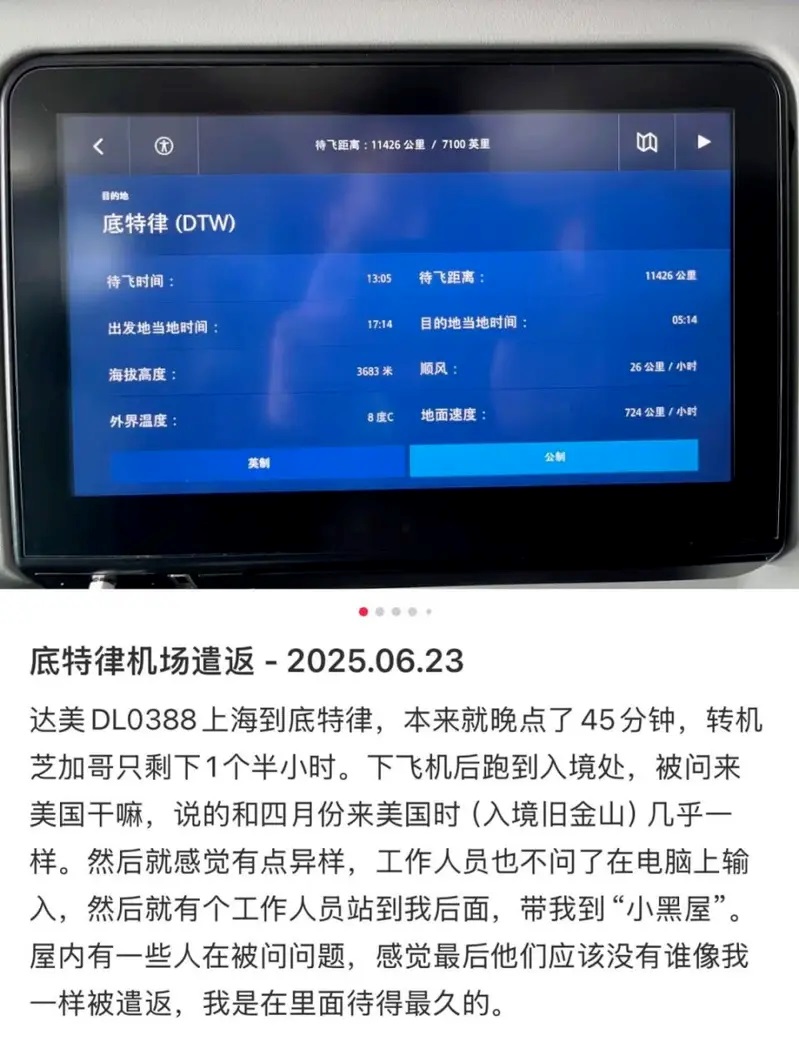
A netizen who claims to be a Chinese engineer recently posted an article online to share his experience of being detained and interrogated by U.S. customs officers. He said that he held a tourist visa and “honestly” told the customs when entering the country that the purpose of his trip was to work in the United States. As a result, he was taken to the “small black room” for questioning and deported. He transferred several times and it took more than 39 hours to return to China. In response, Chinese netizens commented: “This is not a dilemma, this is a public matter”, “If you hold a tourist visa and say you want to work, it would be strange not to be put in the small black room, there is nothing wrong.”
According to Tencent’s self-media “Greater Los Angeles LA”, the netizen who claims to be a Chinese engineer posted on social media that he arrived in Detroit from Shanghai on Delta Airlines DL0388 on June 23. He was originally going to transfer to Chicago, but was stuck when entering Detroit.
It turned out that when he was asked about the purpose of his trip to the United States at the time of entry, the netizen clearly told the customs officers that the purpose of his trip was to “assist American factories in solving problems and expected to stay for 3 weeks.” The customs officer immediately asked someone to take him into the “small black room” for a detailed interrogation. The netizen recalled that he “honestly” told the customs officers that it would take 3 weeks to solve the factory problem, and explained that the local American employees retired and there was no replacement, so he needed to come in person to deal with professional and technical problems.
According to reports, the netizen had applied for an L-1B work visa in 2019 and went to the United States to work for a period of time. The L-1B visa for this entry has expired. He holds a B1/B2 business travel visa, which is only applicable to business inspections and tourism in the United States, and cannot work in the United States.
After about an hour of interrogation, the customs officials cited that he had traveled to the United States with an L-1B visa in 2019 and the content of this declaration was similar to that year. The engineer did not hold a valid work visa but intended to participate in professional activities in the United States, constituting an “Intended Immigrant Without Proper Documentation”. He finally decided to deny his entry and initiated the deportation procedure.
Afterwards, the netizen was asked to restate his personal information, purpose of entry, whether he was involved in crime, drug use, and connection with terrorist organizations. All information was recorded and printed for archiving. One hour later, the customs officer arranged for him to fly to Amsterdam and transfer back to China. Before boarding, two staff members accompanied him to the boarding gate to hand over his passport to the crew, and told him that he must wait until the plane takes off before returning it.
It took 14 hours from Shanghai to Detroit, 7 hours from Detroit to Amsterdam, and 11 hours from Detroit to Shanghai. The transfer took 4 hours and 3 hours respectively, and the total time was more than 39 hours. The netizen joked that he had completed a “Northern Hemisphere Tour”.
Some netizens said in the comments that this was not the first time. He was also deported when he entered the country on April 11. Coincidentally, the same flight, the same entry point, and even the same version of the story. Another netizen said, “Based on my experience of being in the small black room twice, you can say you are going to travel or visit friends, but you said you were working, which is the most unacceptable to them.”
The Chinese Embassy in the United States recently issued a statement saying that with the arrival of summer vacation, Chinese citizens’ tourism to the United States has entered a peak period, and reminded Chinese citizens to pay attention to comply with entry regulations when traveling to the United States. If you are inspected, please answer relevant questions objectively and truthfully. If you think you have been treated unfairly, you should express your opinions calmly and collect and preserve evidence for complaints. Do not act excessively.

